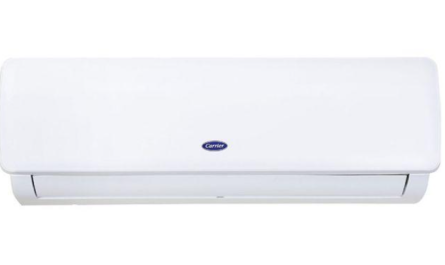Nowadays, every industry strives to operate with maximum efficiency and to ensure that it is necessary to operate at full pace. Do you know how is it possible? Well, it is attainable when the heavy machines being used receive a safe and required level of electricity. For added safety, steps in these high electrical current handlers, known as contactor relays. So, if you are an industry owner, read on to learn about the principles of these electrical safety devices.
What are Electrical Relays?
The purpose of utilising contactor relays in electrical distribution systems in industries is to ensure the process’s reliability. They differ from regular relays in their capacity to manage larger loads, making them indispensable in heavy-duty applications. These relays are constructed with a coil, contacts, and terminals made of high-quality materials, ensuring efficiency and longevity.
The relay revolves around an electromagnetic coil. When power flows through this coil, it attracts the contacts, establishing a circuit connection. Furthermore, relays have several types which are uniquely purposed, so moving forward, let’s explore them.
Exploring the Types of Contactor Electrical Relays
AC and DC relays stand as two fundamental variants, each meticulously crafted to harness a different type of electrical current. AC relays operate on alternating current, while DC relays utilise direct current.
NO contacts close when energised; NC contacts, however, open. This feature is useful when you require a circuit to be activated upon command. For example, NO contacts in a light switch allow you to illuminate a room when needed.
Definite-purpose relays are designed for specific tasks (like HVAC control), while general-purpose relays cater to various applications. In addition, general-purpose relays offer a practical solution when flexibility is the required key. Hence making them suitable for various industrial settings where diverse control is necessary.
Applications of Electrical Relays Explained
Electric contactor relays are essential components in many electrical systems. Here are some of the primary applications for using these relays:
Here, the relays play an important role by ensuring motors operate safely. They offer protection against electrical mishaps and control the start-up process. This helps in preventing sudden surges and potential damage to the motors.
Large-scale lighting systems are generally found in stadiums or commercial establishments. They often employ relays to ensure that the lights operate smoothly. Moreover, they can contribute to energy savings and promote sustainability by ensuring that the lights are only on when needed.
High-powered HVAC systems require precise controls to function effectively. Contactor relays help in this by ensuring optimal temperature regulation. This means the workspace gets neither too hot nor too cold.
Advantages of Using Contactor Relays
Investing in relays can lead to long-term benefits both in terms of operations and cost savings. Here are a few to learn about:
The electric relays are designed to last. They are made from robust materials and are built to withstand wear and tear. This durability means that they often outlive other alternative components, making them a cost-effective choice in the long run.
Electrical systems can sometimes be overloaded, leading to potential short circuits or other hazards. Contactor relays help prevent these overloads, ensuring that machines remain in good health and reducing risks to the personnel working around them.
The modern world is moving towards automation, and the relays are no exception. They can easily be integrated into automated systems, allowing for remote control to boost efficiency and lead to potential cost savings.
Acknowledging the Role of Relays
The role of contactor relays is to ensure efficient and safe operations. As a result, it makes them an undeniable and indispensable asset for industries. It not only helps in ensuring the safety of the machinery but also the personnel using them. Connect with an electrical solutions partner with years of experience and explore more about relays today!
